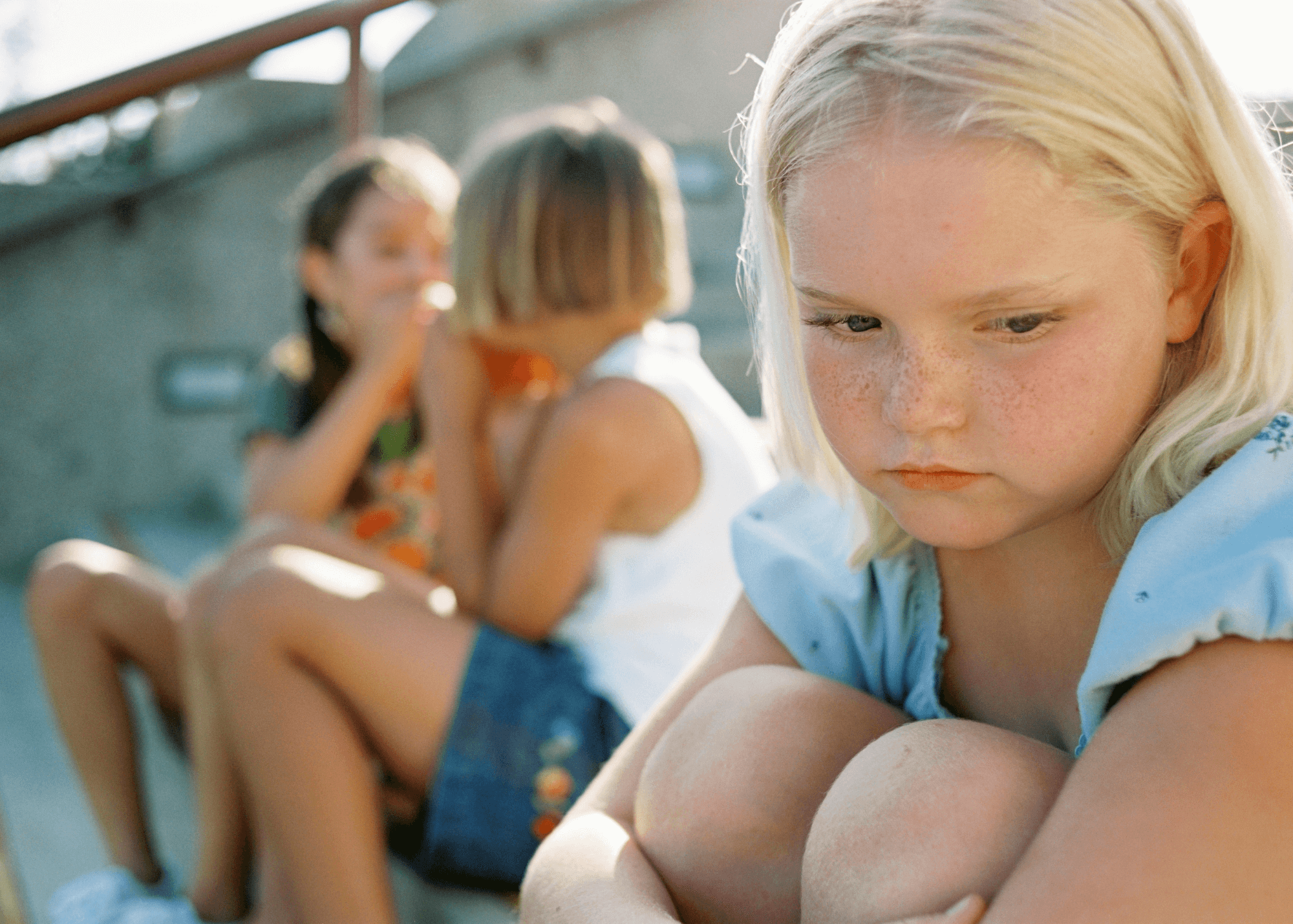“Mama, I had a problem with my friends at school today.” My daughter’s eyes flooded with tears. I pulled her onto the couch beside me, and she spilled the story.
As much as we long to protect our kids from hurt, to cocoon their vulnerable hearts in a bubble, friendship struggles are inevitably a part of growing up. As upsetting as it can be when our kids experience drama with friends, these situations are golden opportunities for shaping our children’s character and social skills. Conflict reveals their strengths and weaknesses, their friendship habits, how they respond to stress, conflict, and hurt. Our children need us to shepherd their hearts in all these areas.
Here are four ways we can help our children navigate friendship drama in godly ways:
1. Draw out both sides of the story
The instant one of my children says they’ve been hurt, my inner Mama Bear wants to roar out of her cave, claws out, teeth bared. Inside I’m raging, How could anyone treat my perfect angel like this? I’m rushing in to make this right!
But when I take a moment to calm down and pray, I remember there may be another side to the story. Proverbs 18:17 says, “In a lawsuit, the first to speak seems right until someone comes forward and cross-examines.” When our children complain about trouble with friends, let’s remember the other child may have a different perspective.
When one of my kids comes to me with a tale of mistreatment and woe, I’ve learned to keep Mama Bear in her cave while I dig a little deeper. I begin by validating my child’s pain, saying, “I’m sorry that happened. I know you feel hurt and angry.” Then I ask questions like these to draw out more information:
• How did the trouble start? What happened leading up to this situation?
• What did you say or do? (And what else?)
• What did your friend say or do? (And what else?)
• What do you think your friend was feeling?
• Does your friend have similar troubles with other people or only with you?
• How did you feel in the moment? How do you feel now? What do you think you should do from here?
These types of questions help paint a clearer picture. Clarifying questions may reveal ways our child contributed to a disagreement or exacerbated a conflict (perhaps unintentionally). Clarifying questions may uncover an unhealthy pattern or underlying problem: maybe a manipulative friend keeps pushing our child’s buttons, a gossip-loving friend is enticing them into drama, or our child is being led into unkindness by the pull of popularity. Before we parachute in with advice or intervention, let’s probe deeper to be sure we accurately understand the situation.
2. Help sensitive kids learn how to handle teasing
“Mama, I think I’m being bullied.”
Mama Bear pricked up her ears, but I forced my voice to remain neutral. “What do you mean?”
My daughter’s voice was indignant but warbly with tears. “Every time I wear my favorite team’s shirt to school, my friends make fun of my team and say their teams are better!”
Relief spilled through me. This didn’t sound like bullying; it sounded like oversensitivity on my daughter’s part.
Sensitive children have much to offer in friendship: they are compassionate and kind, considerate of others’ feelings, and generous with their affection and loyalty. But they also get hurt easily. They may misinterpret jokes and teasing, taking themselves—and others—too seriously. And when sensitive kids overreact to jokes with anger or annoyance, they may make themselves a target for additional teasing.
My sensitive child needed help differentiating between good-natured teasing and true unkindness. She needed to learn how to engage in friendly banter. We practiced some funny comebacks—nothing mean, just ways to show her friends that she had a sense of humor. We also read Proverbs 19:11, “Good sense makes one slow to anger, and it is his glory to overlook an offense” (ESV).. Sensitive kids need our help figuring out when to stand up for themselves, when to let small offenses go, and when (and how) to laugh at jokes.
3. Empower kids with their own solutions
Do kids sometimes need our intervention to protect them from unhealthy friendships? Definitely. If a child is being manipulated, belittled, or bullied, or if a friendship causes consistent anxiety or stress, we may need to collaborate with the other child’s parent, or seek support from a teacher or school counselor.
But kids also need help developing social skills so they can navigate tricky situations when we’re not around. We can help them brainstorm solutions and invite them to rehearse their responses with us. Our kids may need to practice making a joke when friends are teasing, practice walking away instead of escalating an argument, or practice standing up for themselves, saying, “I don’t like the way you’re talking to me. I’m going to play with someone else. Maybe we can try again tomorrow.” We can’t be there every time our kids face trouble in friendships, but we can prepare them to handle difficulties on their own with greater confidence.
4. Incorporate Scripture and prayer
Opening the Bible in real-world conversations teaches our kids that God’s Word is not just a holy book for Sundays—it has real power to help their daily life. And praying about friend issues teaches kids that God cares about the details of their life. Prayer reminds our kids (and us!) that even when we can’t change a situation or we aren’t sure what to do, we can ask God to work, then watch what he does.
It’s not fun seeing our kids struggle in friendships, but it is infinitely rewarding cheering them on as they mature and experience victories. As we shepherd our children’s hearts through their growing pains, we will probably find our child isn’t the only one growing through the process—we’re growing as parents too.
Consider a few extra resources:
- The friendship fix
- Why we don’t say “best friend”
- How do I help my children build lasting friendships?



